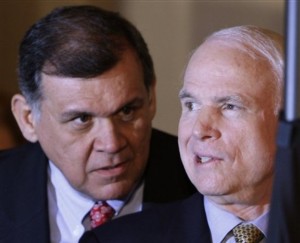I use a total of three credit cards. The first is a card issued by Citibank that offers a rounded set of cash back rewards, my alternate is a Bank of America Visa Signature card, and for business expenses I use an American Express Blue Cash for Business card. But I don’t pay interest fees because I don’t carry a balance — I only spend what I can pay off before the due date.
For a conscientious consumer, there are a number of reasons to use a credit card for as many expenses as possible.
- You can often automate regular expenses like cable and electricity. Your accounts are automatically charged rather than opening yourself to forgetting to send a check.
- Credit card statements provide accurate records of your spending. Cash spending often falls under the radar.
- When you pay for most expenses with a credit card, you do not have to carry as much cash around with you.
- You are not liable for fraudulent charges on your credit card.
- Many credit card companies offer rewards like cash back for their use.
Last year, I decided to reduce my credit card spending to practically zero while paying for as much as possible with cash. After a couple of months, I found that my level of spending did not significantly decrease but my level of accuracy in tracking my expenses did decrease. Sometimes, you can’t receive a receipt and it requires time and effort to track these expenses. There are studies that show people tend to spend less when they use cash rather than credit cards, but for people whose spending is already stripped down or optimized, there is no significant difference.
The real problem with credit cards is hidden. I first experienced this first-hand when I worked for a non-profit organization almost a decade ago. Somehow I inherited responsibility of managing the organization’s website, which wasn’t too far-fetched considering I had been running websites for several years at that point and it was a small company. The website included an online store, my first exposure with e-commerce from the management side. Our merchant agreement was with a monster of payment gateway services, Authorize.net. We were paying a third party to manage our store in addition to the merchant account.
I redesigned the store to be managed through what was called Yahoo! Store at the time. It was significantly less expensive and rather than dealing with an unresponsive third party, we managed the store from the office. But I had an interesting inside look at the cost of being a merchant.
It’s expensive to accept credit cards. This cost has to be built into the price of the products — for all customers, even those who pay cash — to ensure a modest profit. Per most merchant agreements, retailers are not allowed to charge a premium for credit card usage. (Some gas stations play fast and loose with these rules by offering what they call a cash discount.)
These fees make it possible for credit card companies to offer rewards even to those customers who pay their bills in full each month. Customers like me feel they are beating the system by earning rewards without paying interest or late fees, but credit card companies have the last laugh; our fervent use of credit cards to earn rewards simply increases their income from the fees charged to merchants for every transaction.
So widespread use of credit cards, with the high fees charged to merchants, increase the cost of goods — all goods — for everyone.
But what possible solutions are there?
We could encourage people to stop using credit cards. I think Dave Ramsey is one of the most influential people who has tried this approach. It has worked well on the individual level, but even if all of his followers were to stop using credit cards, it would not make a dent on the industry. Higher prices due to widespread use of credit cards is something we just have to deal with. Visa, Mastercard, and the others have too much power over retailers, and unless that changes, everyone pays the price for credit cards.
The Consumerism Commentary Podcast is in full swing with new episodes every Sunday. Listen and subscribe now!
Credit Card Use Increases Prices for Everyone



Read more of Credit Card Use Increases Prices for Everyone…


 If Steven Tyler was trying to get his motorcycle brand, Dirico Motorcycles, some media attention he did a great job. Steven Tyler fell off the stage while performing at the Sturgis Motorcycle Rally and was taken to the hospital.
If Steven Tyler was trying to get his motorcycle brand, Dirico Motorcycles, some media attention he did a great job. Steven Tyler fell off the stage while performing at the Sturgis Motorcycle Rally and was taken to the hospital.




